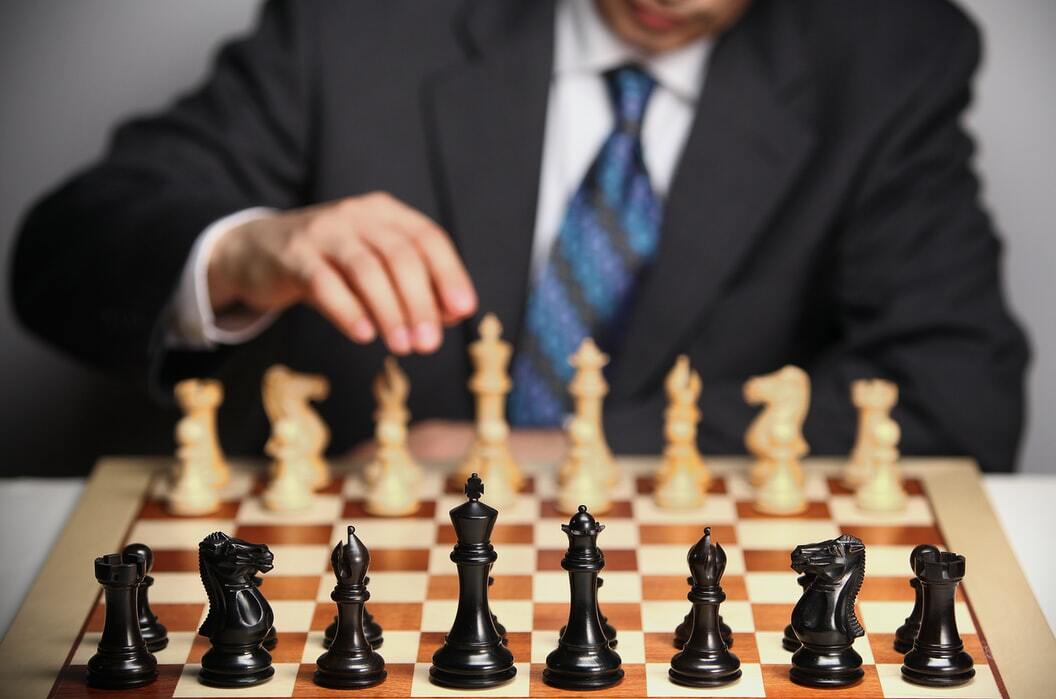Game Theory is the branch of mathematics concerned with the analysis of strategies for dealing with competitive situations where the outcome of a participant’s choice of action depends critically on the actions of other participants[1] (dictionary definition).
Game Theory has been applied to contexts in war, business, leadership, science and many other professional fields of learning. It explains human conflict and how individuals cooperate within a competitive situation. As humans, we act differently when we are comfortable and calm, than when we are faced with pressuring circumstances. Most people make rash decisions at this time because they are unable to calm their environment and reason to make better judgment.
It is the responsibility of an organizational behaviouralist to identify employee challenges through periodic counselling sessions. Sadly, many organizations do not have professionally trained psychologists to cater for the emotional welfare of their employees. Human resource managers can only do little by handling the technical aspects of an employee’s welfare. Every organization needs a trained psychologist to handle the emotional welfare of employees. You will be surprised to know that people don’t only quit their jobs because of the money but also because most employees have no one to talk to when they are faced with a challenge. There is little your boss can do when you need emotional help. There should be an independently trained psychologist who does not work directly with employees but is responsible for providing career advice and managing an employee’s emotional learning environment.
Many issues persist in the labour market. Not all these issues are premised on rewards and remuneration. Some have to do with sexual harassment, poor succession planning and management, organizational health and safety, etc. In Africa, most organizations have these structures but rarely use them.
In a game of chess every piece has its role, direction and movement. Not all pieces on a chessboard can move in the same direction or perform the same role. The chess board explains division of labour. The pawns literally offer themselves for sacrifice, the knights attack, the bishops are mischievous characters and the royal band hides at the back line. The twenty first century is gradually changing the world of work. New organizational roles are being created on demand. Automation is laying off individuals whose jobs were previously manually operated by hand. This century is no place for the lazy individual employee or organization who refuses to learn and train others respectively.
“According to the rule for military operations, there are nine kinds of ground. Where local interests fight among themselves on their own territory, this is called the ground of dissolution.”
Master Sun Tzu, “Art of War”
In organizations where management and employees don’t see eye to eye on certain issues, productivity is low. Obviously, management and employees cannot always see eye to eye. However, management must have employee concerns at heart and not only so, but must work on getting the expected deliverables to the employees to enhance mutual cooperation and the overall success of organizational objectives. The ground of dissolution is no place for an organization that has a sustainable mission and vision statement. In the game of employer-employee relationships, both parties must have explicit mutual consent aside the implicit mutual consent of the psychological contract that exists in the mind of both parties. The Game theory for talent retention seeks to eliminate all “political” relationships into long-lasting “family ties”.
Employees need attention and will do anything to get it. Their antics may range from rebellion to dishonesty and disloyalty to insolence and indolence. No one likes to be ignored. A classical example is seen in the life of Pietro Aretino, a young Roman servant boy during the sixteenth century. When Pietro craved attention as a writer of verses, he decided to publish a series of satirical poems ridiculing the pope and his affection for a pet elephant. This attack put Pietro in the public eye immediately.[2] He was loved by some and hated by some. An unhappy employee will do everything possible to be happy. This is what Pietro had to say for himself:
“Even when I’m railed at, I get my own quota of renown”
Pitro Aretino (1492 – 1556)
In today’s world of work, there are employees like Pietro. When they don’t get what they want from management, they’ll upset everybody. However, some employees may support them though their strategies for getting attention are violent. They will still get renown among the common employee folk because they will be seen as preaching the needs of the employees. You can’t fire such employees on grounds of disobedience. They’ll take legal action and have a say in court. A jury may even support them.
Let’s make talent retention work. As organizational leaders, let’s have our employees’ needs at heart. This is a collective global effort. Let’s share our thoughts and concerns as employees with our superiors.
“People feel superior to the person whose actions they can predict. If you show them who is in control by playing against their expectations, you both gain their respect and tighten your hold on their fleeting attention.”
Robert Greene, 48 Laws of Power
[1] Game theory definition
[2] Adapted from Robert Greene’s 48 Laws of Power

